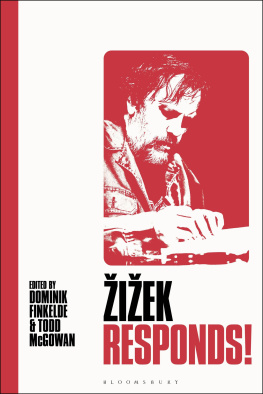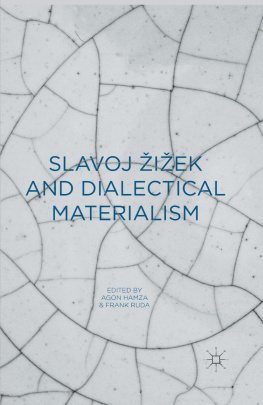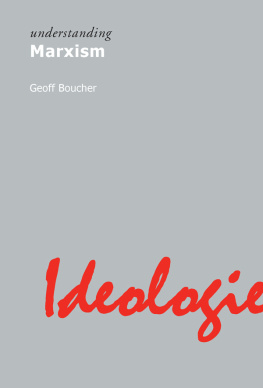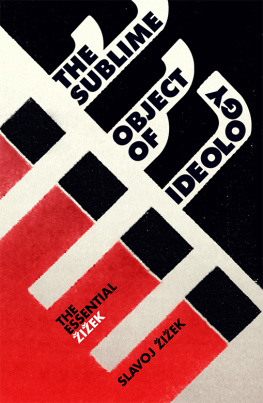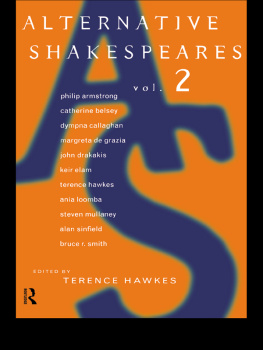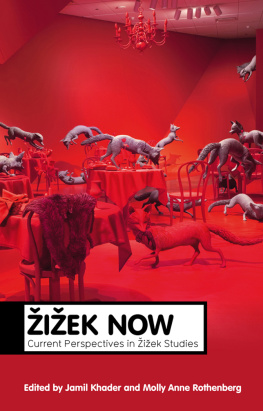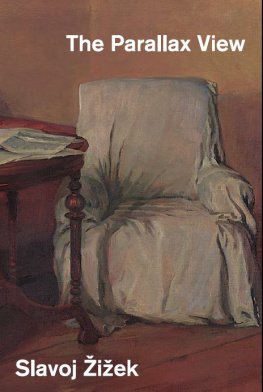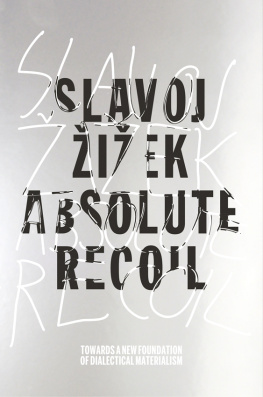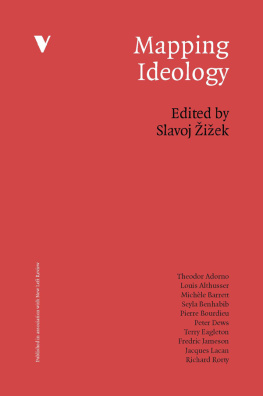Contents
Guide
A series edited by Slavoj iek
SIC stands for psychoanalytic interpretation at its most elementary: no discovery of deep, hidden meaning, just the act of drawing attention to the litterality [ sic! ] of what precedes it. A sic reminds us that what was said, inclusive of its blunders, was effectively said and cannot be undone. The series SIC thus explores different connections to the Freudian field. Each volume provides a bundle of Lacanian interventions into a specific domain of ongoing theoretical, cultural, and ideological-political battles. It is neither pluralist nor socially sensitive: Unabashedly avowing its exclusive Lacanian orientation, it disregards any form of correctness but the inherent correctness of theory itself.
Everything You Always Wanted to Know about Literature but Were Afraid to Ask iek
sic
Russell Sbriglia, Editor
DUKE UNIVERSITY PRESS Durham and London 2017
2017 Duke University Press
All rights reserved
Printed in the United States of America on acid-free paper 
Typeset in Sabon by Tseng Information Systems, Inc.
Library of Congress Cataloging-in-Publication Data
Names: Sbriglia, Russell, [date] editor.
Title: Everything you always wanted to know about literature but were afraid to ask iek / Russell Sbriglia, editor.
Other titles: SIC (Durham, N.C.) ; 10.
Description: Durham : Duke University Press, 2017. | Series: SIC : 10 | Includes bibliographical references and index.
Identifiers: LCCN 2016040909 (print)
LCCN 2016041334 (ebook)
ISBN 9780822363033 (hardcover : alk. paper)
ISBN 9780822363187 (pbk. : alk. paper)
ISBN 9780822373384 (ebook)
Subjects: LCSH : iek, SlavojCriticism and interpretation. | iek, SlavojInfluence. | Criticism. | Popular culture and literature.
Classification: LCC B 4870. Z 594 E 94 2017 (print) | LCC B 4870. Z 594 (ebook) | DDC 199/.4973dc23
LC record available at https://lccn.loc.gov/2016040909
Cover art: Photo by Borut Peterlin.
Contents
The idea for this collection came to me during the first International iek Studies Conference, held at SUNY Brockport in May 2012 and organized by Antonio Garcia. It was there that I first met Todd McGowan, whose enthusiastic response to the idea and subsequent encouragement of the project were crucial to my taking it up in earnest. I thank him for this, for his input on an early draft of my introduction, and for his contribution to the volume. Though she was the last to come aboard the project, Anna Kornbluh was indispensable to its completion, as she not only gave a crucial reading of a late draft of my introductionone that prompted me to better frame itbut also stepped in at the last minute to contribute the volumes all-important lead-off essay.
I would like to thank all of the other contributors to the volume as well, both for their hard work on their respective essays and for their patience as I worked toward honing the volume into its current form. I hope they find the end result to have been worth the wait.
Molly Rothenberg (an early champion of the project who offered sage advice to this first-time editor) and Donald Pease both gave the entire manuscript very generous, very careful readingsreadings that resulted in the strengthening not only of its individual essays but of the collection as a whole. I am grateful to them both.
At Duke University Press, I would like to thank Courtney Berger for her confidence in the project, Sandra Korn for her guidance as I worked toward finalizing the manuscript, and Lisa Bintrim for her work on the manuscript itself.
Last, but certainly not least, I would like to thank Slavoj iek for his support of and collaboration on this project. If this book succeeds in bringing greater attention to the relevance of his work for literary studies, I will feel that I have in some way begun to repay him for his generosity.
Slavoj iek between Theory and Post-Theory
Were one to ask a random literary critic or theorist what Slavoj iek knows about literature, the answer would more than likely be some variation on not much. Indeed, if posed such a question himself, iek might very well answer, Nothing! Take, for instance, his recent confession that, when it comes to literature, it is here that one encounters the very bottom of my bad taste. As evidence of such bad taste, he volunteers his opinion that Daphne du Maurier is a much better writer than Virginia Woolf, an opinion likely to strike even the most strident of anticanonists as definitive proof that iek knows nothing about literature. One might even imagine such critics responding in the form of the following line from the Marx Brothers Duck Soup , one of ieks favorite classic Hollywood films: This man may talk like an idiot, and look like an idiot, but dont let that fool you: he really is an idiot!
Upon a closer look, however, perhaps there is more to this supposed idiocy than meets the eye, a resounding something to this seeming nothing after all. Conceding that du Maurier tells stories without truly being a writer, for her works are marked by a melodramatic excess, a pathetic directness, and an overall lack of style, iek nonetheless insists that this lack of literariness is less a fault of du Mauriers prose than a formal effect of the fact that [her] narratives directly, all too directly, stage the fantasies that sustain our lives.
Among the most common accusations leveled at iek by his detractorsone that I will address more thoroughly belowis that his use of artworks (especially films) is purely hermeneutic, that the works he invokes serve as merely incidental illustrations of an already installed machine.
Far from confirming claims that ieks interest in works of literature lay solely in their exemplarity, in their ability to function as allegories of theoretical doctrines, this reading of du Maurierone that touches on issues of taste, style, form, periodization, and even reader responsedemonstrates not only ieks interest in but also his respect for literatures singularity.
Of all these figures, iek presents the most interestingand perplexingcase with respect to literary studies. As Birns points out, though everyone in the humanities kn[ows] ieks work, it [has] not produce[d] readings the way the work of his predecessor theory stars had. When it comes to iek, however, though he is indeed universally known, his work, as I will address below, has had a much greater impact on film and media studies than literary studies.
This is not to say that literary critics have ignored iek altogether. Terry Eagleton and Geoffrey Harpham, two of todays leading literary critics and theorists, have written on iek at length. I will address the former problemlets call it the film problemat length below. For now, the latter problemlets call it the Lacan problemis more pressing.
Lacan avec iek; or, A Miserable Little Piece of the Real
Given the titles of many of ieks bookstitles featuring phrases such as everything you always wanted to know about Lacan, an introduction to Jacques Lacan through popular culture, Jacques Lacan in Hollywood and out, and how to read Lacanit is little wonder that iek is often thought of as, above all, an ambassador of Lacan. Lacan, of course, is no stranger to literary critics. His Seminar on The Purloined Letter (1955), The Agency of the Letter in the Unconscious (1957), and The Signification of the Phallus (1958), to name but a few of his more iconic crits , have long been recognized as key works of structuralism, even poststructuralism. Indeed, in the American academy, Lacan is most often classified alongside contemporaries like Louis Althusser, Roland Barthes, Hlne Cixous, Jacques Derrida, Michel Foucault, and Julia Kristeva as a fellow (post)structuralist. Kristeva is perhaps the most notable in this regard, as the title of her first book in English, Desire in Language: A Semiotic Approach to Literature and Art (1980), is indicative of the semiolinguistic bent that Lacanian psychoanalysis was given by its early exponents.



